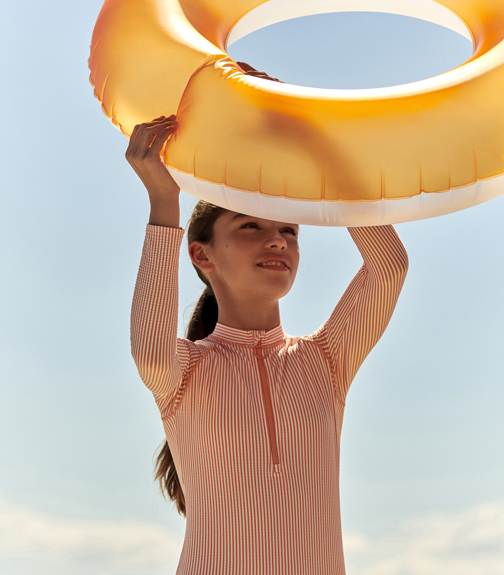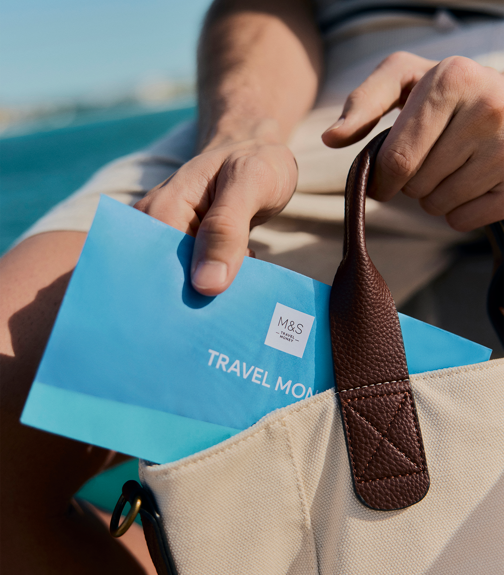How to buy Kenyan Shillings
-
Buy Kenyan Shilling Online
Buy Kenyan Shilling online with Click & Collect at over 580 M&S stores. Use our Pounds to Kenyan Shilling (GBP to KES) currency calculator to work out how many Kenyan Shilling you want. Pick your collection date and collect from your chosen M&S store.
Click & Collect Kenyan Shilling (KES) in as little as 60 seconds.*
*Subject to availability
-
Buy Kenyan Shilling In-store
Buy Kenyan Shilling in your local participating M&S store.* With over 90 Travel Money Bureaux nationwide - many open seven days a week. - you can buy Kenyan Shilling at a time that suits you.
*In-store rates may differ from online rates.

Why buy Kenyan Shillings from M&S Travel Money?
Before you set out on your African adventure, visit M&S Travel Money for your Kenyan Shillings. We take the hassle out of buying foreign currency, with:
- Our Kenyan Shilling rate has no hidden fees & zero commission
- Click & Collect Kenyan Shilling the same day*
- Stores open 7 days a week**
- Get more with Sparks Preferential Rates
**store opening hours vary

What you need to know about the Kenyan Shilling currency
The Kenyan Shilling is the official currency and legal tender of Kenya. Its currency code is KES and its symbol is KSh. Each Shilling contains 100 Cents.
Kenyan Shillings come in both coins and banknotes.
Coins include:
40¢ (Cents), 50¢, 1KSh (Shilling), 5KSh, 10KSh, 20KSh
Banknotes include:
KSh10, KSh20, KSh50, KSh100, KSh200, KSh500, KSh1000
You can buy Kenyan Shillings online using our click & collect service.
Please note not all denominations are available to exchange.

Guide to Kenya
A wildlife lover’s dream, Kenya is a large African nation offering vibrant, diverse culture, world-class sporting activities and unforgettable natural encounters. A safari is at the top of most Kenya tourists’ bucket lists, with the chance to see the ‘Big Five’ (lions, leopards, buffalos, rhinos and elephants) out in the wild drawing millions of visitors each year.
But there’s so much more to Kenya than its National Parks. Like snow-white beaches on the Indian Ocean coast, mountains packed with hiking, climbing and biking opportunities, lush oases hiding waterfalls and caves, plus so much more.
Sail on a traditional dhow boat to snorkel around coral islands and reefs, witness the dramatic ‘Great Migration’ as countless wildebeest, gazelles and zebras cross the Mara River each year, or float above the plains in a hot air balloon.
Frequently asked questions
No, the Kenyan Shilling isn’t a closed currency, and is readily available from M&S Travel Money.
Kenya is a heavily cash-reliant society, so you should travel with both cash and cards. Card payments may be accepted in cities or some tourist hotspots, but you shouldn’t rely on this.
Kenya is considered an affordable destination to visit. Your daily budget will depend on what you plan to do and in how much style you like to travel, but you can expect to pay around 1,000KES (£6) for lunch for two people and approximately 7,918KES (£48) for a night in a Nairobi hotel.
Kenya’s official currency is the Kenyan Shilling, and it’s the primary legal tender used throughout the country. You’ll often see prices stated in both Kenyan Shillings and US Dollars, and will occasionally be able to use US dollars in places like large hotels and tourist hotspots. You shouldn’t however rely on any currency other than Kenyan Shillings on your trip.
Yes, UK citizens need a visa for visiting Kenya. The local authorities recommend applying online for electronic travel authorisation at least 2 weeks before travelling. If you already hold a valid visa, you can use it until it expires.
Your passport should be valid for at least six months beyond your arrival date and have at least two blank pages. Always check the entry requirements with your country’s embassy before departing.
Tipping is expected in Kenya, particularly in hotels, restaurants and bars, and for services like taxis. As in many other locations, it’s customary to tip around 10-15% of the bill, and you should try to tip in cash.
Kenya has a very diverse culture, so several languages are spoken throughout the country. The main languages are:
- Swahili
- English
You might also hear some regional languages, including:
- Kikuyu
- Luhya
- Dholuo
- Kalenjin
There are currently FCDO (Foreign, Commonwealth & Development Office) advisories against all but essential travel to some areas of Kenya, like the Kenya-Somalia border and northern parts of the east coast.
Visit the FCDO (opens in a new window) for the latest government travel advice for Kenya.
The dry season, from June to October, is widely considered the best time of year to visit Kenya, with the mild weather, clear skies and Great Migration making it a popular choice for tourists.
Other popular currencies
If you’re planning a future holiday or a trip that takes in multiple destinations, these other currencies may be useful:


